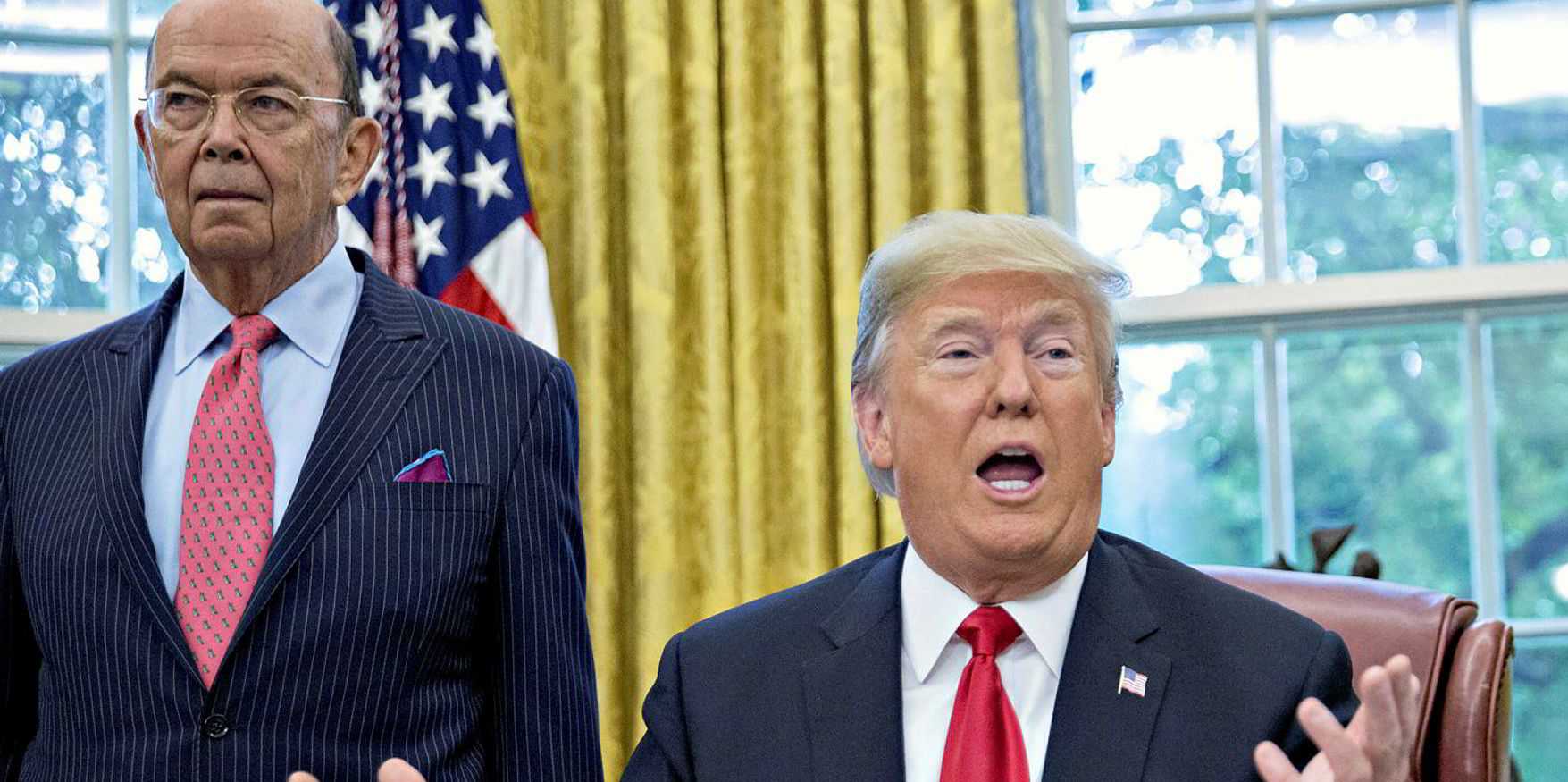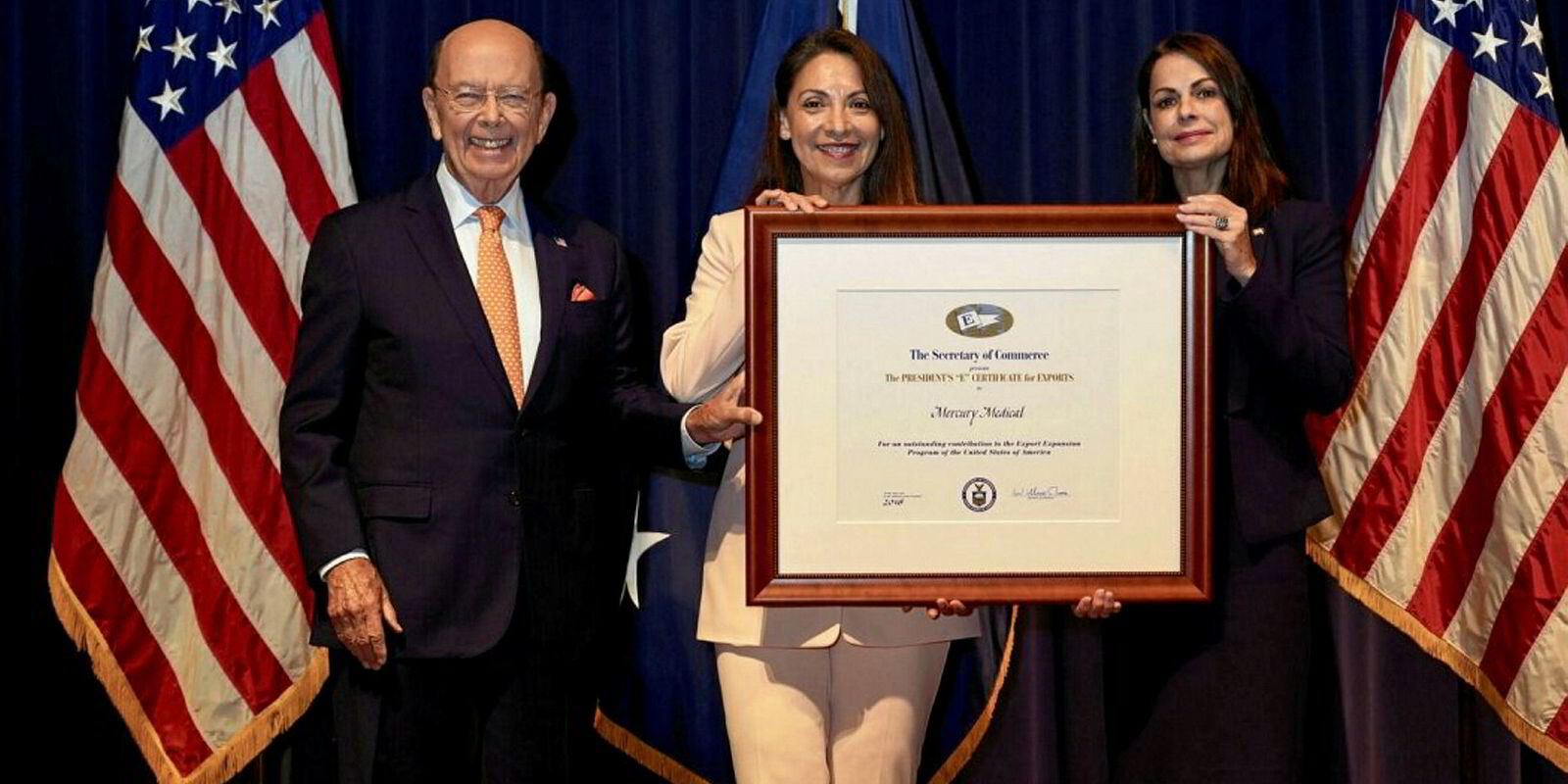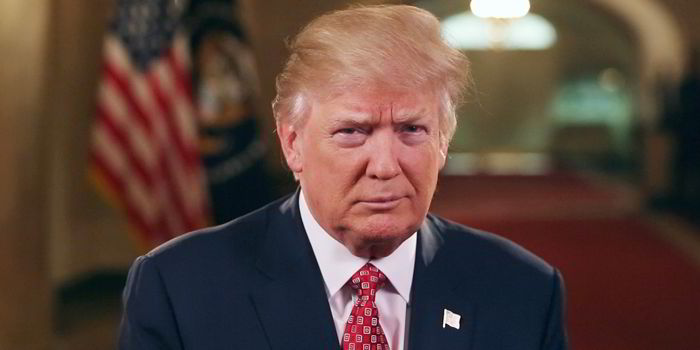The Navigator Gemini has been shipping LPG round the world for a decade without problems, until March this year.
That’s when it appeared on a US government list of vessels accused of contravening sanctions against Syria. That itself is noteworthy. What is even more noteworthy is the identity of the owner: Navigator Holdings has longstanding connections with US Secretary of Commerce Wilbur Ross.
The 20,500-cbm Navigator Gemini and two other Navigator Holdings ships, the 22,000-cbm Navigator Pegasus (built 2009) and the 22,600-cbm Navigator Grace (built 2010), stand accused of being used to aid the Syrian regime of Bashar al-Assad, in contravention of American and European sanctions.
According to the US Treasury Department’s Office of Foreign Assets Control (Ofac), at some point between 2016 and March 2019 the vessels engaged in ship-to-ship transfers of petroleum products destined for Syria.
It is unclear when and where the transfers took place and under what circumstances, as Ofac, the government arm that enforces sanctions, declined to provide TW+ with details. The trio — the only ships owned by a publicly traded company — simply appeared on a list alongside dozens of other vessels accused of circumventing sanctions against Iran, Syria and North Korea.
The lack of clarity about the timings makes it impossible to know whether Ross was still connected with Navigator at the time of the alleged transfers.
Since his inauguration in January 2017, President Donald Trump has elevated two figures with prominent shipping connections to important cabinet-level positions: Ross and Secretary of Transportation Elaine Chao.
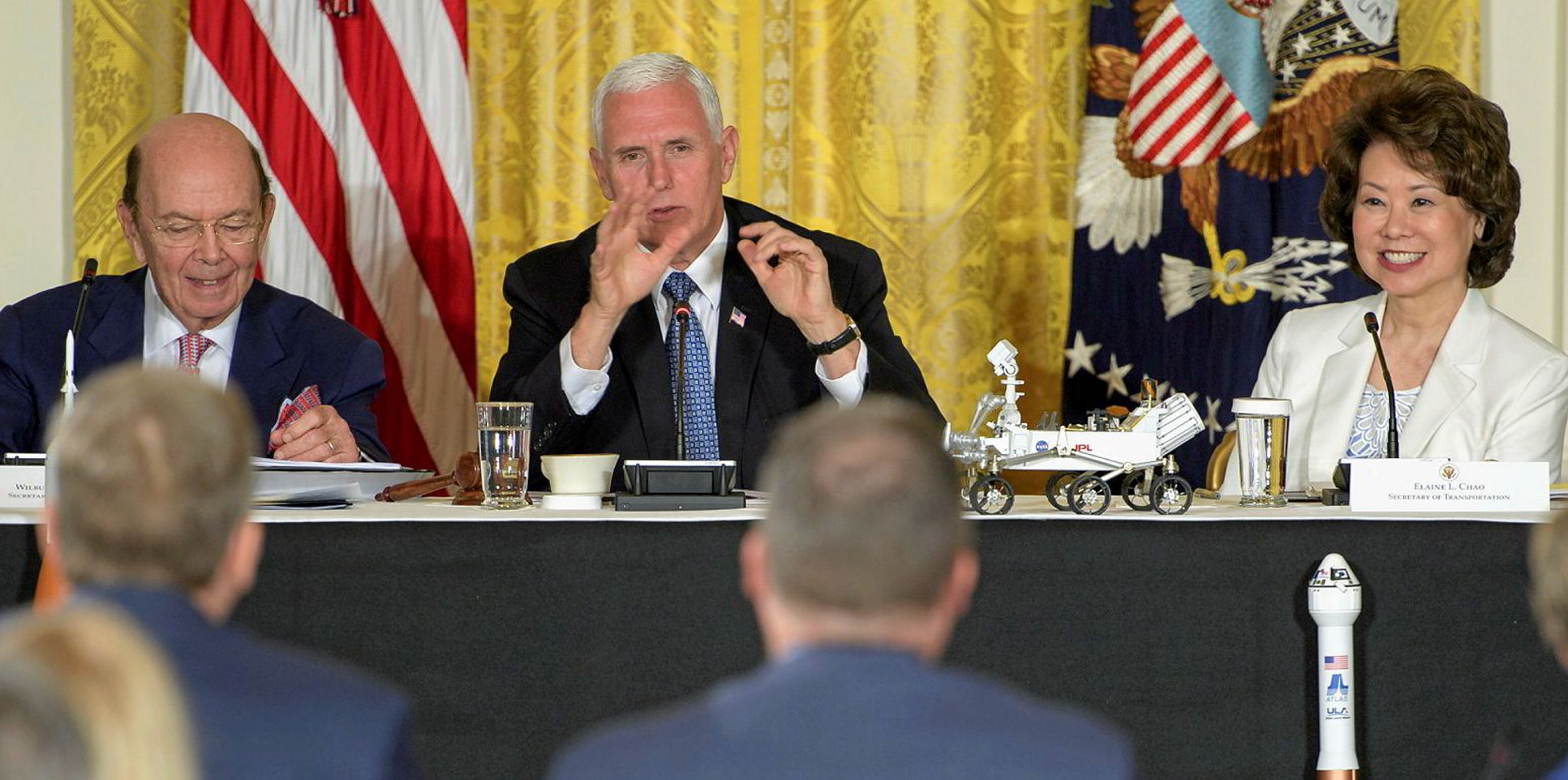
It was a first political post for Ross, who was the majority shareholder in Navigator Holdings and held executive positions with Diamond S Shipping, along with a stake in a bulker owner.
For Chao, heading the Department of Transportation, which oversees, in part, the country’s maritime infrastructure and domestic shipping, it was her second cabinet post. She had previously served as labor secretary under President George W Bush from 2001 to 2008.
She is the daughter of James Chao, founder of the Foremost Group, where her sister, Angelo Chao, is chairman and chief executive.
Ross divested himself of many of his holdings before taking the helm of the Department of Commerce on 28 February 2017. But, according to ethics filings, he held on to his shipping investments, at least initially.
Ross held a 67% stake in Navigator Holdings through a web of private companies. He appeared to have a stake in Singapore shipmanager Navig8 through WLR Navig8 Co-Investment and a stake in private bulker owner Nautical Bulk Holdings.
Later in 2017, Ross sold off those investments as reporters and government watchdog groups raised concerns about conflicts of interest. Reports connected Navigator Holdings to a Russian energy company, Sibur, with links to President Vladimir Putin.
Another report claimed that Ross negotiated tariff exemptions with South Korea, with which Nautical Bulk does significant business.
Companies holding Ross’ financial investments, too, were connected to Appleby Trust, part of the law firm Appleby that was implicated in the Paradise Papers for helping wealthy and powerful people hold funds in offshore tax havens.
Chao’s connections to shipping are more prominent than Ross’, with her father and sister directly involved in the industry, but they are perhaps less extensive.
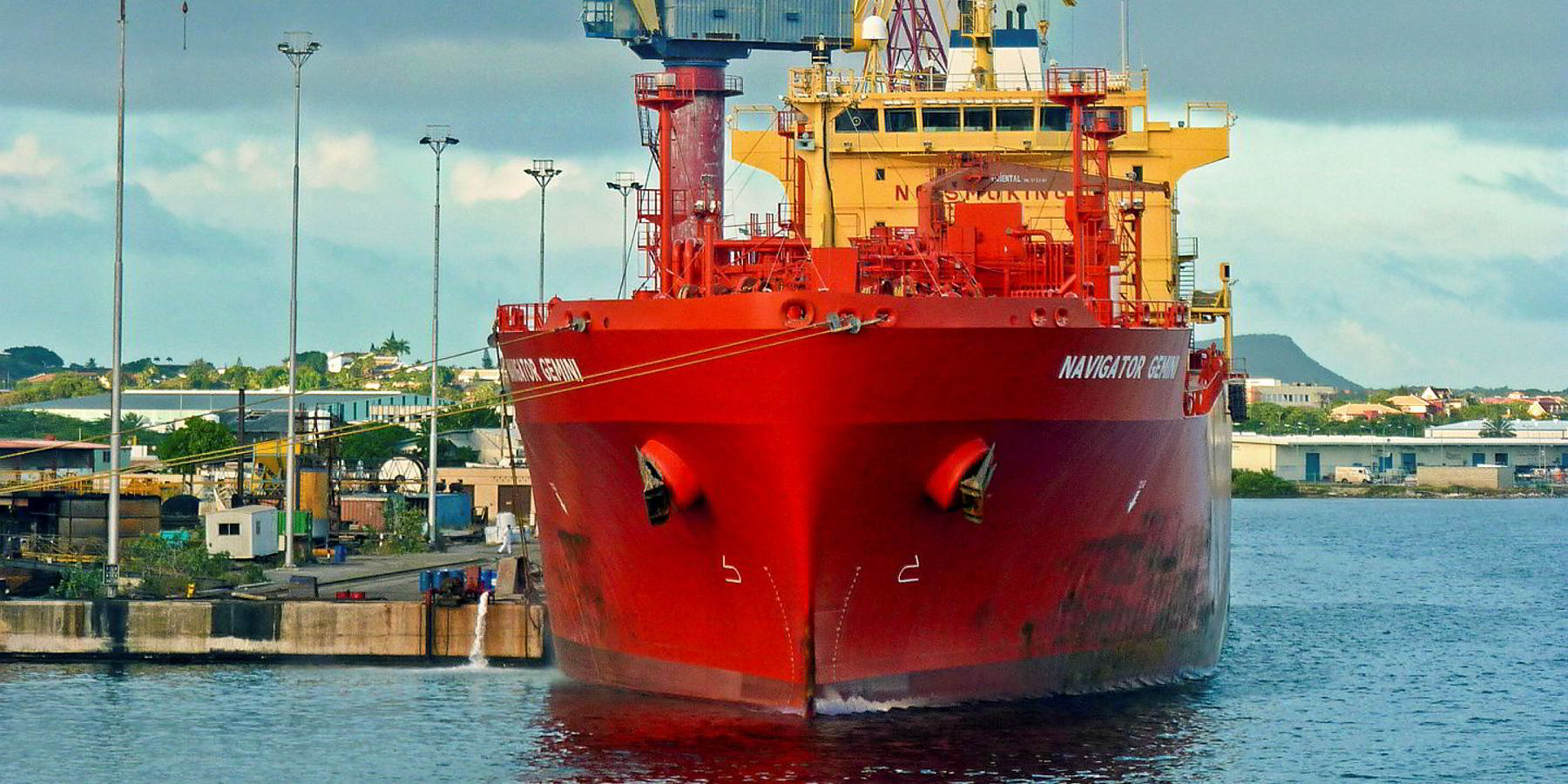
She has reportedly not worked in the family business since the 1970s, but she and her husband, Senate Majority Leader Mitch McConnell, did, according to Forbes, receive a gift worth anywhere from $5m to $25m after her mother died in 2007.
Like Ross, she was also embroiled in her own conflict of interest scandals. The New York Times reported in June that Chao made a series of requests to the State Department ahead of a 2017 trip to China to arrange travel for a family member and include relatives in meetings with government officials.
Despite the presence of Ross and Chao in the cabinet, the Trump administration has not turned out to be a champion of the shipping industry, what with its strict sanctions regime and the trade war with China.
The list on which the Navigator Pegasus, Navigator Gemini and Navigator Grace were placed was widely seen as a statement that the government was watching the industry like a hawk.
It did not add any ships, companies or people to Ofac’s specially designated nationals list, which in effect bars those named from doing business in the US or with its citizens, while freezing their assets held in the country.
But it did warn anyone involved, from financiers to brokers to managers and owners, that they could be in trouble if ships were caught again in the future.
The warning is seen by some as unfair. As with the Navigator Holdings trio, many were accused of ship-to-ship transfers, meaning they were implicated in wrongdoing even though third parties delivered the cargoes to the sanctioned entities.
In another incident in April, Italian shipowner PB Tankers ended up on the list, along with all six of its ships, after its 51,063-dwt Silver Point (built 2001) took a charter with Cuba’s state oil company, Cubametales, to ship oil from Venezuela.
The company and the ships were delisted in July after PB Tankers cancelled the charter and committed to better monitoring, but not before it had to file for court protection and restructure its debts.
The affair led to a fuel supplier arresting two of its ships. To move ahead with the restructuring plan, PB Tankers must pay $300,000, but needs court permission first.
The delisting was hailed as one of the fastest in Ofac history.
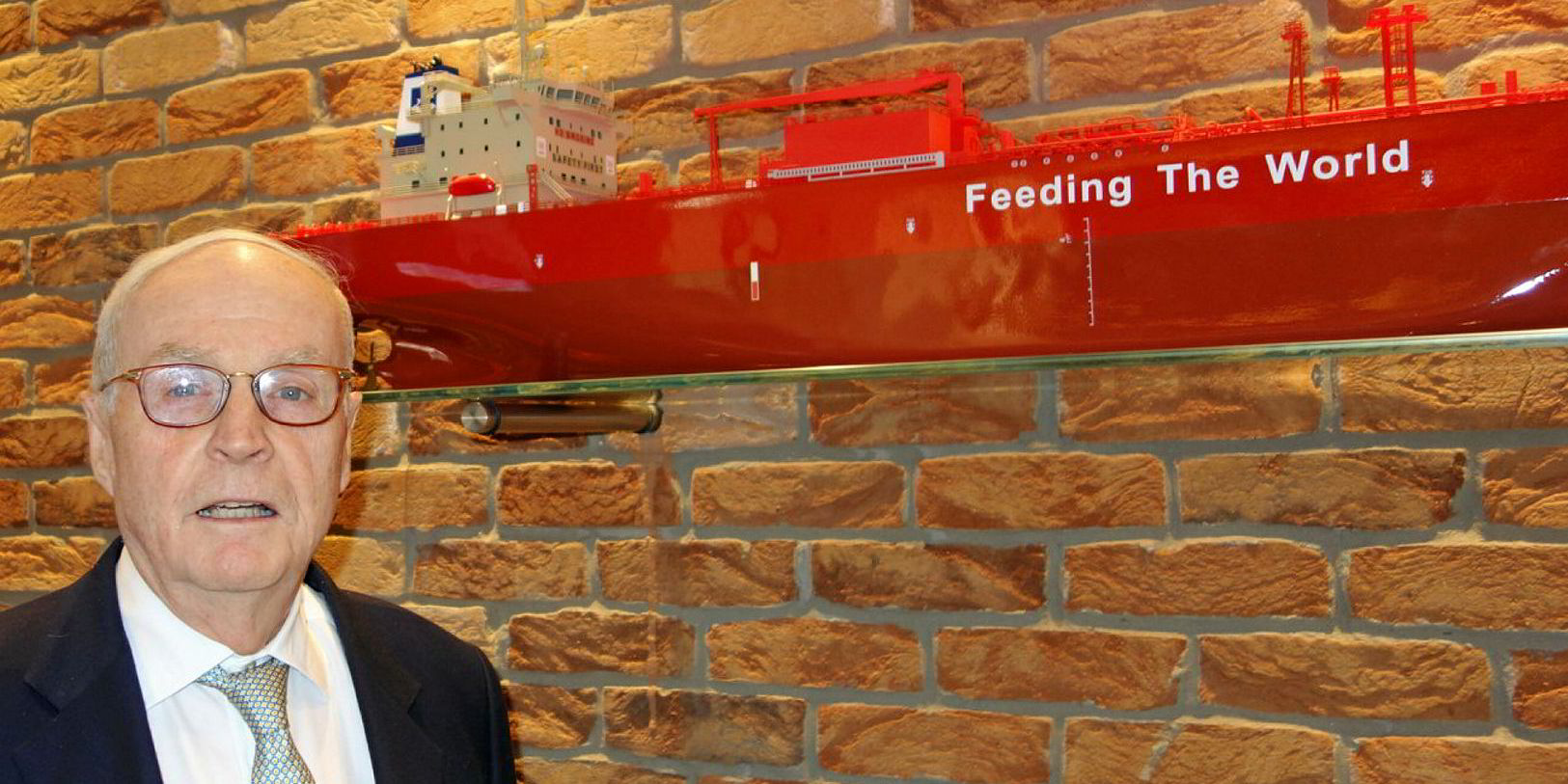
In the aftermath of the Ofac listing, Navigator Holdings denied any wrongdoing.
“We are not aware of any allegation or charges by Ofac that we have violated any sanctions and we do not believe that we have, intentionally or unintentionally, violated any US sanctions involving Syria or any other country or person, and we are not aware of any allegation by Ofac or any other sanctions authority that we have violated sanctions,” the company said. “We operate so as to comply with, amongst others, US, EU and UN sanctions.”
It added a line about the issue to its forward-looking statements in May, warning investors that its gas cargoes could be discharged in sanctioned areas or to sanctioned individuals “without our knowledge”.
With the US tightening the screws on Venezuela with new sanctions, the company ended the first and second quarters in the red, falling well short of analysts’ expectations.
Navigator attributed the losses to sanctions against Venezuelan state oil company PDVSA that forced it to cancel charters for six ships and return them to an overcrowded spot market. The company said it had asked for a sanctions waiver.
On its second-quarter earnings call, outgoing chief executive David Butters called the waiver process “a black hole”.
“There’s no way of penetrating it. We haven’t had any word from them whatsoever,” he said. “Actually, I didn’t really expect to have word back from them. I think they’ve made up their mind what they’re doing, the State Department has, in conjunction with the Treasury.
“Foreign policy today is based around tariffs and sanctions. The policy negotiations don’t exist. Tariffs, sanctions, and that’s the language of diplomacy today.”
The volatility of US diplomacy will keep the industry on its toes, more careful than ever not to cross any red lines, despite the presence of two former shipping big hitters working at the heart of government.
